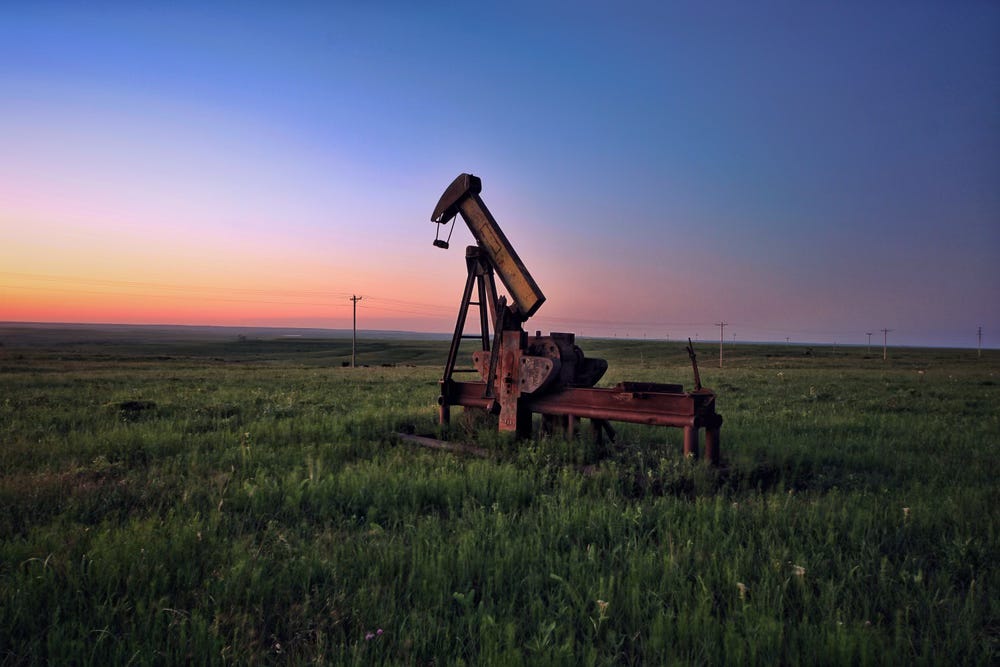The economics of oil
The global economy is better placed than in the past to cope with oil shocks, but it is not immune from them.
Rising tensions in the Middle East amid Iran’s missile attack on Israel and Israel’s advance into Lebanon have sent the oil price higher, with benchmark Brent crude closing up almost 8.0% on the week.
Iran is a significant producer of oil, accounting for about 4% of global production. Major attacks on Iranian oil facilities would be likely to push prices significantly higher, partly on concerns that Iran would step up its efforts to disrupt oil production and shipping across the Middle East. It is such region-wide disturbance that could push the oil price above the $100 a barrel level that could prove more damaging in the West.
Iranian-backed Houthi rebels in Yemen have been attacking shipping in the Red Sea for almost a year and Iran is believed to have launched a drone attack in 2019 that temporarily disabled one of Saudi’s Arabia’s main oil facilities.
Over the last 40 years Iran has repeatedly declared that if it were threatened it would close the Straits of Hormuz, the narrow sea lane between Iran to the north and Oman and the UAE to the south. As Iran’s then president, Hassan Rouhani, said in 2018, "if someday, the United States decides to block Iran's oil [exports], no oil will be exported from the Persian Gulf." About 20% of global oil and liquefied natural gas production are shipped through the Strait.
Higher oil prices dampen demand and lower growth in consuming nations. A 1990s study of postwar oil prices by Professor Andrew Oswald of Warwick University showed that every major surge in energy costs had been followed by recession. Conflict in the Middle East, and the ensuing spike in oil prices, have been harbingers of western recessions in 1973, 1979 1990.
The world is better placed to deal with disruption to oil supply than in the past. Energy markets are more efficient, integrated and contestable than they were in the 1970s. Shale fracking has led to a huge increase in US energy production, weakening OPEC’s hold over supply. Oil’s share of global energy supply has fallen as a result of greater efficiency in consumption and as countries have switched to gas and renewables. Consumer nations now have petroleum reserves that can be used to protect against shortages.
These factors helped protect the West against the worst effects of the energy shock of 2021-22. Oil and gas prices surged in response to a rebound in demand following the end of lockdowns and as supply from Russia was restricted after it invaded Ukraine. Growth suffered, particularly in Germany, but unlike previous such shocks no major consuming nation fell into recession.
Surprisingly, a year of elevated geopolitical risk in the Middle East, and OPEC production cuts designed to bolster prices, have seen oil prices drift lower, not higher. Even after last week’s rise, the oil price on Friday was 10% lower than it was on the 6 October last year, the day before Hamas’ attack on Israel. Part of the reason is that oil demand from China, the world’s second largest oil user, has softened in the last year. Some smaller OPEC producers have exceeded their production quotas that has reduced the effectiveness of OPEC’s attempts to bolster prices. Last month, the Financial Times reported that Saudi is likely to abandon its unofficial oil price target of $100 per barrel (last week Brent crude closed at just under $78) as it prepares to raise production from December. This story has also weighed on the oil price.
So far, financial markets have remained calm in the face of rising risks in the Middle East. US equities, for instance, closed on Friday almost unchanged on the week. The relationship between oil prices and western growth seems to have weakened and energy markets are more resilient and diversified than in the past. Yet the Middle East remains a vital energy producer and rarely has the risk of direct conflict between Israel and Iran been greater. The global economy may be better placed to cope with oil shocks, but it is not immune from them.
A personal view from Ian Stewart, Deloitte's Chief Economist in the UK. To subscribe and/or view previous editions just google 'Deloitte Monday Briefing'.


